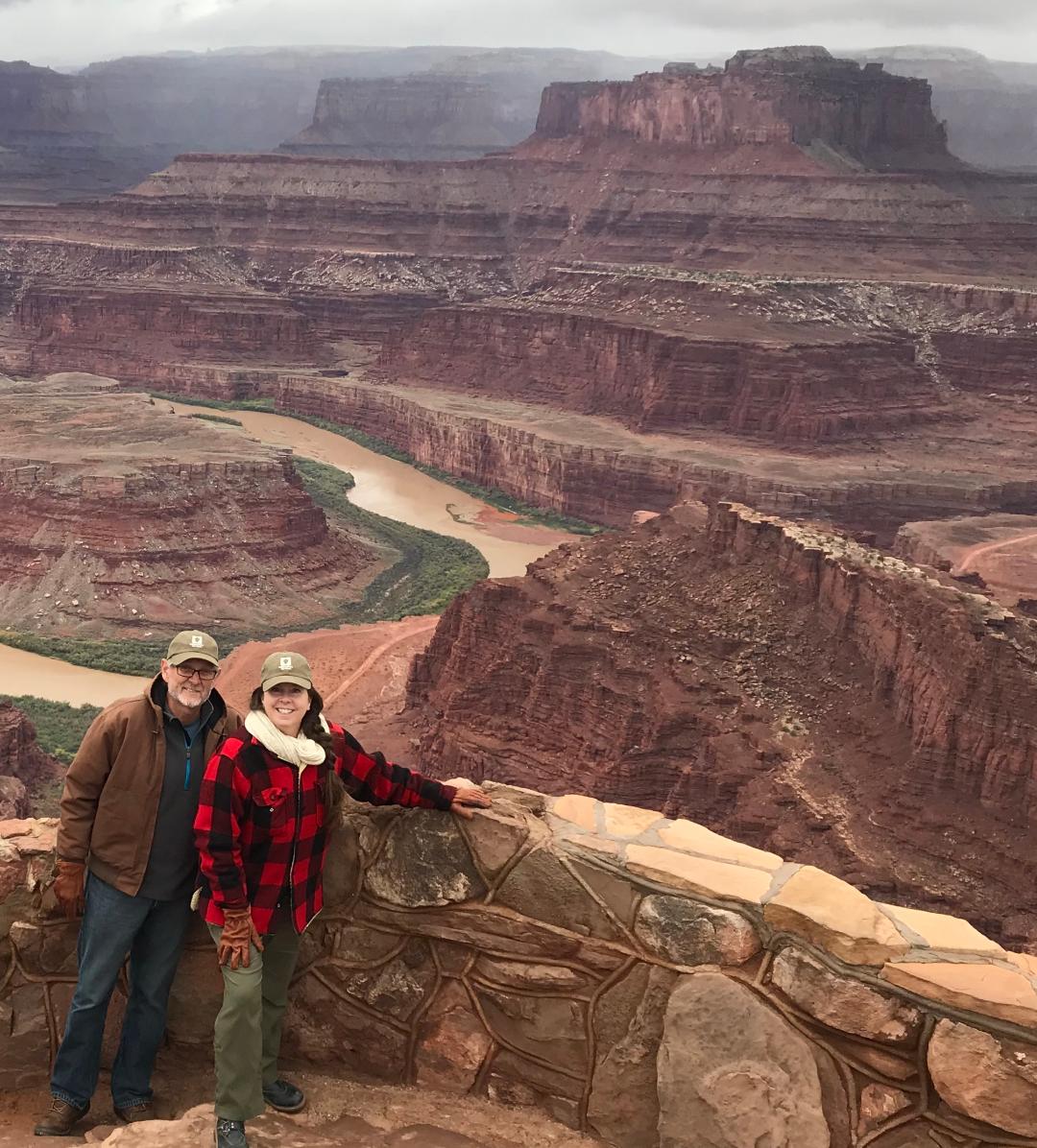In 2016, the National Park Service celebrated its centennial anniversary. Karla Morton, the 2010 Texas Poet Laureate, envisioned a deeply engaging way to honor America’s cherished national parks: she decided to visit each one and produce a book of poetry dedicated to them. She recruited her friend and fellow Texas Poet Laureate, Alan Birkelbach, and the two pursued the dream.
“We wanted to do our part to preserve and protect these open spaces, these national parks, for the next seven generations. It’s a remarkable thing and a remarkable treasure that America has,” said Morton, invoking a concept borrowed from the Iroquois Nation which teaches that people should consider the consequences of their actions on the next seven generations, not just people alive today.
The result of the journey is “The National Parks: A Century of Grace,” a nearly 300-page volume of photographs and poetry highlighting each of America’s 62 national parks. It is scheduled for release on Nov. 9 and available for pre-order on Amazon.
Seeds of a vision
Morton visited national parks a few times with her family as a child, but she doesn’t remember having a particular interest in public lands. She did, however, have an affinity for nature.
“I was just that really weird kid that my mom would send outside and I would have a pencil and paper in my hand,” Morton remembered. “I knew if I could sit still and quiet, the wind would have something to tell me—some greater knowledge that the wilderness had to offer me that I didn’t know.”
In 2013, Karla Morton learned that the 100th anniversary of the National Park Service was approaching, and she started to get interested in the system and its mission.
“I think it says a lot about who we are as a nation when we can lift up and protect and have beauty and wilderness simply for the fact of having beauty and wilderness,” she said.
Morton did some research and was surprised to find there was no anthology of poetry dedicated to the National Park system as a whole. She saw an opportunity and asked Birkelbach to join her.
For Birkelbach, the project resonated with a longing for natural spaces.
“I grew up in the country until I was eighteen,” he said. As an adult, he lived in the middle of urban Dallas, Texas, working in the financial field. When Morton pitched her idea, it sounded like the medicine he needed.
Though he had a full-time job in Dallas, it took just thirty seconds for Alan to say ‘yes,’ the two recalled.
The journey
Morton and Birkelbach applied for various grants to fund the project but didn’t get any buy-in. That didn’t stop them.
“Poets are kind of the low man on the literary totem pole,” Morton acknowledged, “but we decided that it was too good and too important and historic of an idea, so we decided to do it on our own nickel.”
Beginning in 2016, the two poets spent three-and-a-half years planning trips all over the United States, returning to Texas intermittently to regroup, make some money, and plot the next mission. They visited as many parks as they could on each trip while leaving enough time to do justice to each one. They estimate that they had driven over a quarter-of-a-million miles by the end of it all.
“It was worth every mile and every penny,” said Birkelbach.
The two visited Utah’s “Mighty Five” national parks in 2019. Morton recalled walking the Cave Spring Trail in Canyonlands National Park, finding a seat in a high place in the rocks and watching the subtle drama of nature unfold for hours.
“It began to rain a little bit, and one of the little holes filled up with water and a little tadpole came to life,” she remembered. “It was just a genesis of life and it was just incredible.”
A life-changing experience
Taking the time to adventure, explore, and deeply reflect on nature made lasting impressions on Birkelbach and Morton.
While checking out of a mountain lodge in Alaska, where the only sound was the roar of a glacier-fed river below, Birkelbach turned to Morton and said, “I can’t go back to work.”
Already nearing retirement, he gave notice to his employer when he returned to Texas and worked through the end of the year before bowing out.
“Suddenly the priorities shifted,” he explained.
Morton, too, felt changed by the experience. She said she came back with “an odd type of confidence that we belong to this world, not the other way around.”
Morton and Birkelbach hope to see “The National Parks: A Century of Grace” in visitor centers and gift shops at each national park and plan to donate a portion of the proceeds to the National Park Service.
The two also hope to inspire a love of America’s natural beauty in their readers.
“We’re bringing our tales back to the hearth, and I can only hope that people read it and they feel something greater than themselves or feel a need to go and see for themselves,” said Morton.
Birkelbach said the book is also an affirmation for those who already love the places documented in its pages.
“Hopefully people will read our words and say, ‘That’s what I would have said when I was there,’” he said.
“We belong to this world, not the other way around.”
– Karla Morton




